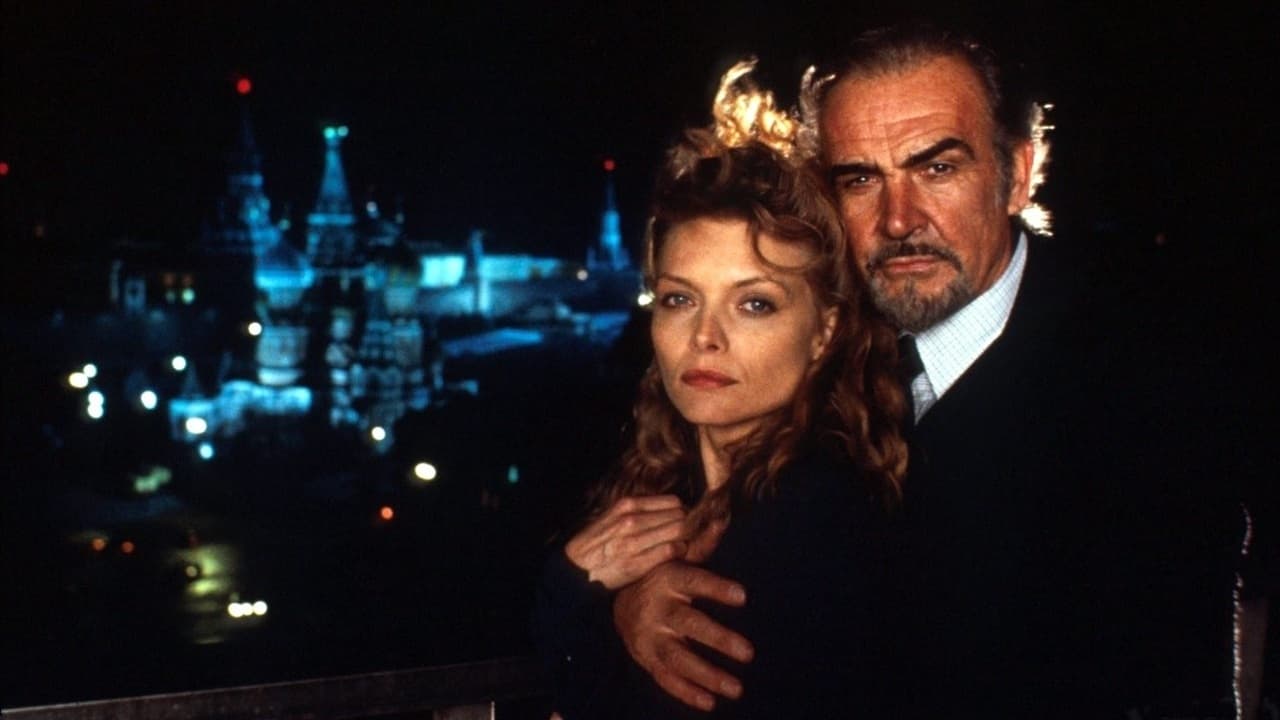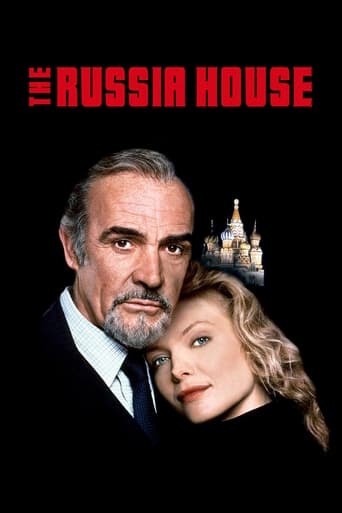

A Soviet author known only as 'Dante' wants his book to be published in the west; to this end he has asked his friend Katya to deliver his manuscript to publisher Bartholomew 'Barley' Blair. Barley in meant to be attending a book fair in Moscow but he isn't there and Katya passes the manuscript on to his 'friend' Niki Landau. She tells him how important it is that this book is published but rather than passing it to Barley he reads it and hands it to MI6. They contact Barley to discover what he knows about Katya and Dante; he has no knowledge of Katya but had met Dante at a party some time earlier. The manuscript suggests that the Soviet military poses far less of a threat than was previously thought of course until they learn more about Dante they have no idea whether he is real or not.Barley is sent back to Russia to learn more about him. Once there he meets Katya and as he learns more details about Dante he develops feelings for Katya. As the operation progresses control is passed over to the CIA and it soon becomes apparent that they are not too pleased with the contents of the manuscript one would think a less dangerous Soviet Union would be a good thing but if that danger is suddenly seen to be rather low the vast amounts of money being spent on intelligence and military equipment is harder to justify something those in that world do not want to see.If you are expecting 'James Bond' style thrills you will be disappointed; there are no exciting stunts, chases or explosions to be seen. In fact there is little real tension as we never really think Barley or Tanya is about to be grabbed by the KGB. That doesn't make the film boring though; the story unfolds in an interesting way. We gradually learn more about Dante while also watching the growing closeness between Barley and Katya. Sean Connery and Michelle Pfeiffer put in fine performances in the lead roles and are supported by an able cast of well-known actors including Roy Scheider, James Fox, Michael Kitchen and J.T. Walsh as well as a young Martin Clunes in a small but amusing role. It is clear that the makes wanted to take full advantage of being one of the first western films to be made in the Soviet Union; many of the scenes in Moscow and Leningrad looked as though they were picked to showcase some of the most impressive parts of those cities. The ending has a nice little twist that doesn't seem overly forced we are also treated to a happy ending that is far from guaranteed with films based on the works of John le Carré. Overall a solid, gently told espionage story that will disappoint anybody expecting a thrill-ride.
... View MoreKatya Orlova (Michelle Pfeiffer) passes along a manuscript intended for minor publisher boozy Barley Blair (Sean Connery). It contains three notebooks from Dante (Klaus Maria Brandauer) showing Russian military secrets and their inferiority. Dante had meet Barley earlier during a party where they connected. British agent Ned (James Fox) and CIA Russell (Roy Scheider) lead the effort to make contact with Dante and determine the validity of the information.This movie does get a good sense of a period of time in Russia. What is truly missing is a sense of tension. There isn't enough danger for Barley. He's not getting killed. At most, the Americans put a little pressure on him but the problem is that he doesn't care. Like he says, he's not selling them the Picasso. He's really just the delivery boy transporting the Picasso. I struggle to figure out what the danger is for Barley. Obviously, the danger is higher for Katya. I love Michelle Pfeiffer but her Russian accent annoyed me. Also there is little chemistry between her and Sean Connery. Her motives are questionable and he's just an old dude after a hot young thing.The most interesting relationship in this movie is between Ned and Russell. They have to decide whether this is real or not. Also they have to run the plan. Their positions are on the line which elevates the danger level for them. It seems to me that there is an easy solution to the questions falling into the wrong hands. They could add other questions to the list. While there are interesting aspects to this movie, there is a dangerous lack of tension.
... View MoreI was disappointed in this film. As a spy film, so-so. Not much intrigue and never a sense of danger. As a romance, it's not that great either: just OK. Of course most every man is attracted to Michelle Pfeiffer, but the story itself doesn't build anything in the Connery character toward that relationship. The only thing the writing puts in there is that he's smitten by her when he first sees a picture of her. The opposite is also true, but not as much. It's understandable that she would have attraction to him from his acting as savior to her and her family, but he's 28 years older, and the writing doesn't address or overcome this. You just have to suspend your disbelief--hard. However, it works a little bit because as the viewer, you like Sean Connery, still see him as 1962's James Bond; and, you like Michelle Pfeiffer. This film could have used lots of editing. It's over two hours and moves very slowly. As my title says, the last 12 minutes are pretty good, but not so great that I enthusiastically say "it was worth the wait." Rather, I say: "The last 12 minutes are good, and the first 110 are simply just so-so."
... View MoreShe not only does the accent, she looks the part. Michelle Pfeiffer as a Russian woman makes this Cold War tale retain its interest, and as for Sean Connery, for once he has an actual rounded character to play, complete with eccentricities, and he does it splendidly. This is a highly successful adaptation of a John le Carre novel. Of course it is all predicated on the menace of the Cold War, even though there is much talk of 'glasnost', photos of Gorbachev are now hanging on the walls, and things are meant to be loosening up in Russia. (In fact this was the first Western film ever made there.) But the Soviet Union still exists, so that this is one of the last big spy movies based upon the Soviet threat. With this film, John le Carre's spy world went out not with a whimper but with a bang. It is a rattling good tale, and well worth the watch today. The supporting actors are very good: Roy Scheider, Klaus Maria Branauer, James Fox, Michael Kitchen, Ken Russell (yes, the director), David Threlfall, and others. Russell gets a bit hysterical in some of his scenes, but one would expect that from him. Brandauer has his usual magnetic intensity. Kitchen is cozy, like the sort of thing you sit in for your cuppa tea. The story itself does have some inert elements, since a group of spy masters sitting around in a control room getting remote signals all the time from Moscow is hard to make dynamic, no matter how many snide remarks they keep making to each other, and how much artificial tension is generated by ambiguous signals which confuse and worry them. One could easily pick no end of holes in the plot. But why should one? The film overcomes all these weaknesses and carries us right along. Somebody somewhere has forgotten how to make good spy stories simply, and the ones being made at the moment are generally too 'busy', leaving little room to breathe between surprises, and characters are too often two-dimensional. Here the two leads are not only written in the round (a clever script by Tom Stoppard helps!), they are played in the round by two real pros. Fred Schepisi does a wonderful job of directing. All good fun, and it really takes you back. It seems only yesterday that Red Square inspired more fear by far than the wastes of Waziristan, or whatever pale substitute for fear we are meant to be quivering about today. This film was shot on location in Lisbon, Moscow, and St. Petersburg (then still Leningrad), and there is a lot of magnificent cinematography, so that the film is partly a travelogue showing us glimpses of wonderful things. It is such a shame that they had to cut away from some of those shots in the interests of the storyline and not linger over them, such as the amazing roof in Lisbon and some glimpses of the Russian countryside, which are so tantalizingly brief.
... View More